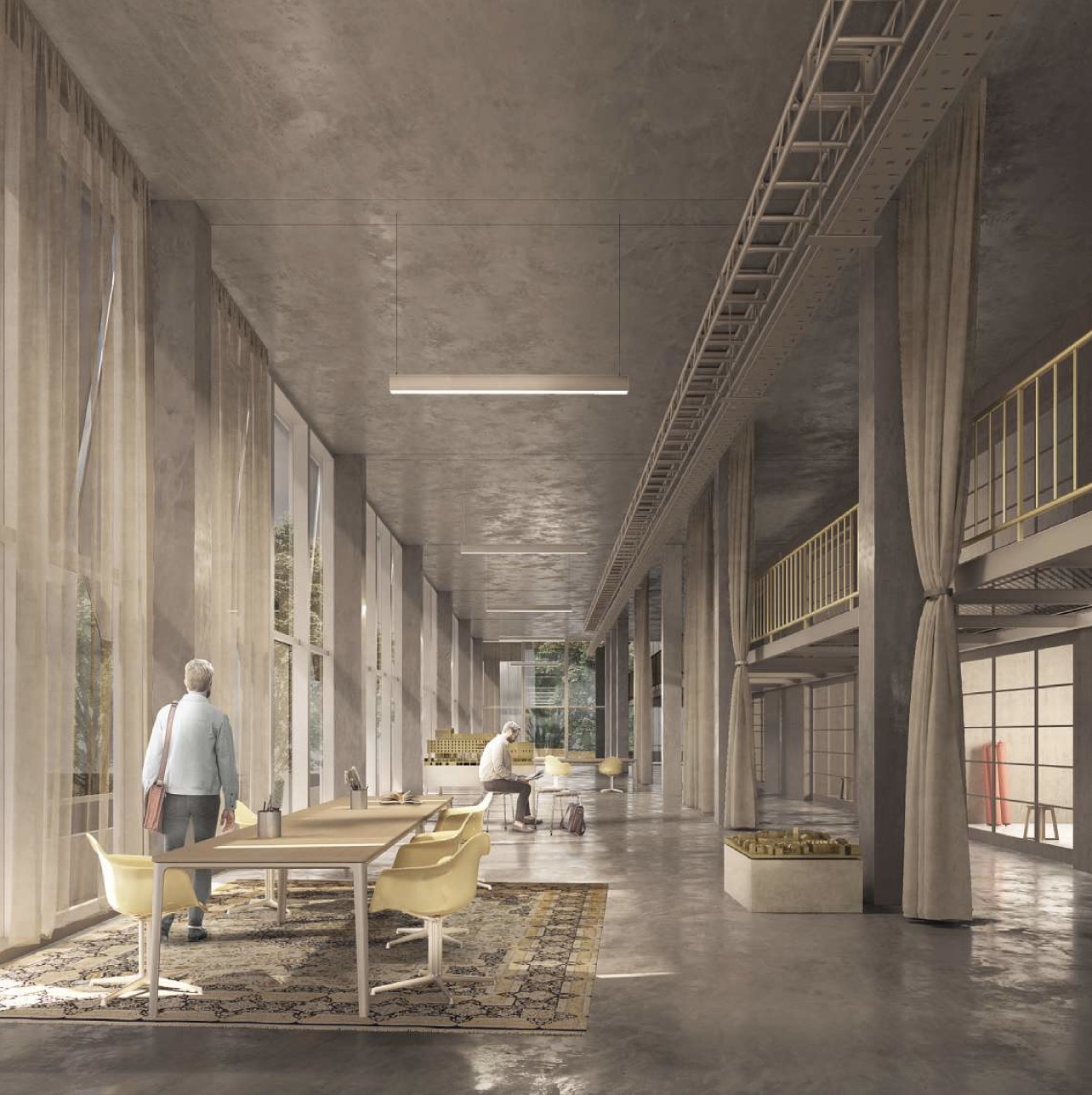Lukas Hertwig

When it comes to the question of how we will live and work in the future, the concept of building further plays a major role. The demands placed on buildings are constantly changing in line with the requirements of society. In addition to spatial organization, the requirements for acoustics, thermal insulation, and accessibility have increased. Buildings today are also expected to contribute to solving the climate crisis. A large part of our built environment already exists and is waiting to be built further. Numerous
buildings by architects from times of different political and economic systems, whose original uses no longer function as once planned, characterize the urban space and offer opportunities for further construction. In addition to the climate crisis, the changing world of work and its impact on society is also a central theme of architecture. Many office buildings from the post-war period no longer meet today’s standards. However, political and social discussions about demolition and new construction show that the potential of preserving existing buildings is often overlooked. Yet the revitalization of these buildings could play a key role in achieving climate targets while promoting adaptation to modern, participatory working models. To realize this, stakeholders from a wide range of disciplines need to work together and jointly initiate transformation processes. Based on a literature analysis, two areas of challenge – building culture and working space – are first analyzed in depth, and their requirements and potential identified. This analysis and the insights gained from it form the basis for a design concept that will sustainably revitalize the extension of Braunschweig City Hall, built in 1970, as a sustainable administrative building. In addition to the required office space for the city administration, an urban living lab for future discourse is to be created on a new city balcony to actively work on the numerous innovation zones of the Braunschweig 2030 urban development concept. This new, inner-city space is intended to be an instrument for academic knowledge, everyday culture, administration, business, and civil society to promote sustainable urban development on an equal footing and with a transdisciplinary approach.
Entire paper in full text